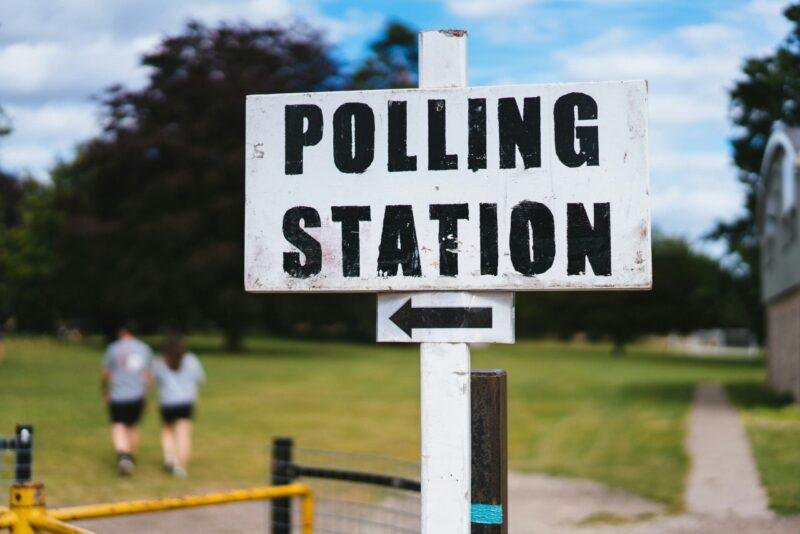
State Budget Stalemate Amid Economic Uncertainty
The New York State budget stalemate remains a crucial issue as lawmakers grapple with economic uncertainties that have led to a significant deadlock. The ongoing impasse has raised alarms among constituents and stakeholders, as it threatens to stall vital state-funded programs and public services. Multiple factors contribute to this fiscal challenge, including unpredictable economic fluctuations, inflationary pressures, and shifting revenue streams that have complicated the budgeting process.
As elected officials work to balance the state’s budget, they are facing mounting pressure to address the diverse and competing needs of their constituents. This balancing act is made increasingly difficult by the rapidly changing economic landscape, which has introduced a sense of urgency in the negotiations. Lawmakers must navigate these concerns while striving to maintain essential services such as education, healthcare, and infrastructure development that have a direct impact on the public welfare.
The stakes are high in this budgetary deadlock, as the implications of a prolonged stalemate could extend beyond immediate fiscal concerns. Should the budget not be finalized in a timely manner, public services may experience significant disruptions, risking the adequacy and quality of resources available to New Yorkers. Furthermore, vital programs that rely on state funding could face cuts or delays, exacerbating existing disparities in access to critical services.
Ultimately, the ongoing budget stalemate emphasizes the need for collaborative dialogue and compromise among lawmakers. The ability to address the fiscal challenges posed by economic uncertainty will be instrumental in ensuring that the state can meet its obligations and respond effectively to the needs of its residents. Achieving a resolution to this impasse is not merely a legislative necessity; it is a vital step toward fostering stability and sustaining the well-being of New York State and its communities.
Impact of the Budget Stalemate on Public Services
The protracted budget stalemate in New York State has raised significant concerns about its repercussions on various public services and state-funded programs. The inability to finalize a budget can have immediate and long-lasting effects on crucial sectors such as education, healthcare, transportation, and social services. Stakeholders and experts have voiced their apprehensions regarding the potential challenges that could arise due to the absence of timely funding.
In the education sector, the lack of state funding could result in substantial financial shortfalls for public schools, which may lead to larger class sizes, potential layoffs of educators, and a decrease in essential programs that support student development. With many schools relying heavily on state funds for operational costs, this delay could severely impair their ability to provide quality education, thereby affecting students and their families.
Healthcare is another area poised to bear the brunt of this budget impasse. State-funded programs, including Medicaid, face the risk of cutbacks, which could lead to reductions in services offered to vulnerable populations. Experts emphasize that a compromised healthcare system may not only hinder access to necessary medical services but may also exacerbate existing health disparities in underserved communities.
Transportation services, often underfunded even in stable budgets, could see significant disruptions. Delayed funding can stall crucial infrastructure projects, affecting public transit systems and road maintenance. Such stagnation may lead to increased congestion and diminished safety on the roads, ultimately impacting the daily lives of commuters and businesses alike.
Moreover, social services, which rely on state support to function effectively, may experience severe challenges. Cuts to programs that assist low-income families and individuals could escalate the struggles faced by these groups, leading to broader societal implications. The dialogue among stakeholders highlights an urgent need for resolution, as the lack of a finalized budget threatens to strain public services that are vital to community well-being.
DHS Revokes Student Visas: Impact on Affected Students
The recent decision by the Department of Homeland Security (DHS) to revoke student visas for individuals enrolled in institutions such as the City University of New York (CUNY) and Fordham University has sparked significant concern and uncertainty among the affected student populations. The move, which is said to be part of a broader effort to enforce stricter immigration policies, will have profound implications for these students, who now face unexpected upheaval in their educational pathways.
One of the primary reasons cited for this abrupt policy change is an effort to ensure compliance with visa regulations and to address perceived abuses within the student visa system. This decision affects not only the international students directly involved but also resonates throughout the broader academic community. Institutions like CUNY and Fordham University have taken active roles in supporting their international student bodies, cultivating diverse and inclusive educational environments. The loss of student visas jeopardizes these efforts and affects the demographic composition of the student population.
For affected students, the implications extend beyond just academic uncertainty. They now face potential disruptions to their residency status, which can complicate their ability to remain in the country. Families are understandably anxious about the grassroots impact this decision will have not only on students’ future opportunities but also on their overall well-being. Universities are beginning to respond by offering counseling services and legal assistance to help navigate the complex landscape brought on by this sudden change.
As the situation evolves, it is crucial for international students and their advocates to remain informed and proactive. Communities and organizations are likely to rally in support of these students, emphasizing the importance of educational diversity and the rights of individuals to pursue their academic goals without unnecessary hindrances. The coming weeks will determine the effectiveness of these responses and highlight the broader implications of immigration policy on educational institutions and the student experience.
Responses and Reactions from Lawmakers and Institutions
In light of the recent budget stalemate and visa revocations that have affected numerous students and educational institutions, a range of responses has emerged from lawmakers and various advocacy groups. Prominent legislators have voiced their concerns over the implications of these developments, emphasizing the urgent need for effective solutions.
Representative Aidan Morales expressed, “The current budget impasse is not just a political issue; it directly impacts our students and their aspirations. We need to come together to honor commitments made to these individuals, ensuring that their educational paths are not obstructed.” This sentiment resonates with many lawmakers who are pushing for immediate dialogue to bridge the gaps that currently exist.
Similarly, educational institutions have issued statements highlighting the disturbances caused by the visa revocations. Dr. Elaine Wu, President of the National Association of Universities, commented, “The financial uncertainty puts our academic environment at risk. Efforts must be made to keep our campuses inclusive and support our diverse student body.” The importance of maintaining international student presence is seen as vital for fostering a rich educational landscape.
Advocacy groups are also actively participating in this discourse. The Student Alliance Organization issued a call to action, urging citizens to contact their representatives. They have stated, “We believe all students deserve the right to pursue their education without fear of interruption due to budgetary failures.” Their campaign aims to mobilize community support and pressure policymakers to urgently address these challenges.
Potential solutions have begun to surface, including proposals to reassess budget allocations to prioritize education funding and discussions about reforming visa regulations to better accommodate students. By fostering a collaborative approach, lawmakers and institutions are hopeful that a resolution can be achieved, providing stability for all affected parties in this ongoing situation.




